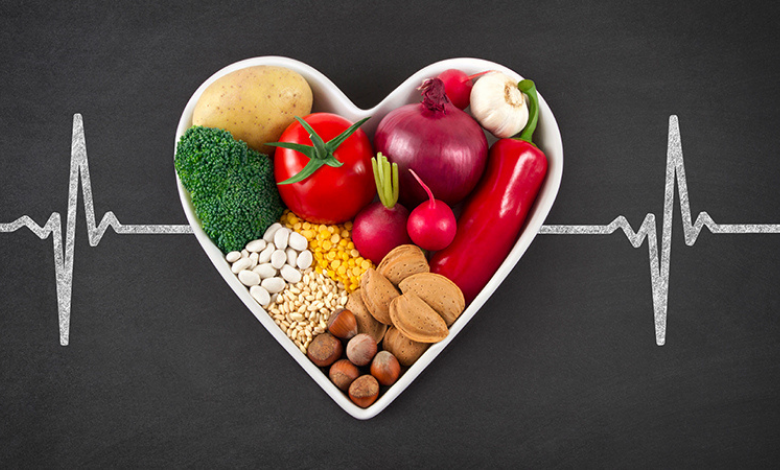Suitable Foods for Heart Health

Heart disease is one of the common causes of death. Over six million persons live with heart disease, and about half are likely to die from it within five years. Although heart problems are common and can affect anyone, especially at an older age, you can do several other things to reduce heart disease risks and detrimental effects.
Scheduling annual check-ups, quitting smoking, exercising daily, taking steps to reduce stress and eating healthy are ways to keep your heart healthy. Amongst these factors that can keep your heart healthy, eating healthy foods is one of the most important.
Health experts warn against eating foods high in cholesterol, fat and sodium since they are bad for heart health.
Creating a diet plan consisting of heart-friendly foods will reduce your risk of heart disease. The following are foods to eat for a healthy heart.
Asparagus
Asparagus contains folate, a vital substance that prevents the build-up of an amino acid called homocysteine. High homocysteine levels in the body increase the risk of certain heart-related conditions like stroke and coronary artery disease.
Beans, chickpeas, lentils and peas
Pulses of legumes such as lentils, peas, chickpeas, and beans help reduce the levels of low-density lipoprotein (LDL), also called bad cholesterol, in the body. These legumes contain antioxidant polyphenols, fibre and protein, which improve heart and general health.
Berries
Berries are rich in antioxidant polyphenols, which significantly reduces the risk of heart disease. They are also low in fat and contain folate, iron, vitamin A, vitamin C, iron, fibre and calcium.
Broccoli
Some studies show that eating steamed broccoli regularly can reduce cholesterol in the body and prevent heart disease.
Flaxseeds and chia seeds
These seeds contain alpha-linolenic acid and other omega-3 fatty acids. Omega-3 fatty acids are known to lower cholesterol levels, LDL and triglycerides. They also help to reduce the build-up of arterial fatty plaques and blood pressure.
Omega-3 fatty acids help reduce the risk of certain disorders like arrhythmias and thrombosis, which lead to a heart attack.
Dark chocolate
Foods that taste good are rarely good for the heart, but this is not the case with dark chocolate. Studies show that dark chocolate has certain benefits that protect against atherosclerosis, a condition characterised by the build-up of plaque in the arteries, which increases the risk of stroke and a heart attack.
Dark chocolate protects against atherosclerosis by preventing stiffness of the arteries and the adhesion of white blood cells. Some studies have also found that increasing the flavanol content of the chocolate, which improves its taste, does not affect its protective benefits.
Coffee
A recent study found that the regular intake of coffee is linked to a reduced risk of stroke and heart failure. However, this study uses machine learning to assess data that only observed an association between factors but did not conclusively identify the effect and causes.
Omega-3 fatty acid-rich fish
Fish contain a high amount of heart-friendly omega-3 fatty acids and protein but contain low saturated fat. Doctors often recommend increased intake of fish consumption for omega-3 fatty acids for people with heart disease and risk of developing the condition.
Medical experts recommend eating 3.5 ounces serving fatty fish such as mackerel, late trout, sardines, and salmon or albacore tuna at least two times a week.
Green tea
A review in 2011 found that drinking green tea can lead to a small reduction in cholesterol, a compound that contributes to developing stroke and heart disease. However, this review did not identify the amount of green tea needs to get this benefit.
Another review in 2014 studied the effect of green tea consumption in people affected by high blood pressure and found that green tea helped reduce blood pressure. However, the study did not identify if the reduction in blood pressure can help in preventing heart disease.
Nuts
Peanuts, walnuts, hazelnuts, almonds, pecans and pistachios contain fibre, vitamins, antioxidants, protein, and minerals which are beneficial to heart health. They are high in omega-3 fatty acids, like walnuts and flaxseeds, making them healthy snack options.
Liver
The liver contains many nutrients, such as iron, copper, zinc, chromium and folic acid. These nutrients increase the haemoglobin levels in the blood and keep the heart-healthy.
Oatmeal
Oatmeal is a rich soluble fibre source, which helps reduce heart disease risk. A study in 2008 showed that products containing oatmeal significantly reduces total cholesterol and LDL without causing adverse effects.
Red wine
Different studies have shown the potential health benefits of antioxidants found in red wine. However, the benefits of these antioxidants may not be more than the adverse effects of alcohol.
A recent study proposed that the antioxidants found in alcohol could be helpful as a new stent used during angioplasty, the process used to widen obstructed or narrow veins in atherosclerosis treatment.
The research is ongoing for a new stent that releases antioxidants in red wine into the blood to aid healing, reduce inflammation and prevent blood clotting during angioplasty.
Note that drinking alcohol is not generally unhealthy for the heart, but it helps in improving cardiovascular health when taken in moderation.
Spinach
Regular consumption of good sources of magnesium can help to maintain a healthy heart rhythm. Spinach is a good source of dietary magnesium, and it has several other health benefits.
Tomatoes
Tomatoes are rich in different heart-friendly nutrients such as folate, choline, fibre and potassium. Potassium ensures heart health, prevents the formation of kidney stones, benefits the bones and muscles.
Some scientists believe that increasing potassium intake and reducing sodium intake is the most beneficial dietary change to reduce the risk of heart disease.
Vegetables
Medical experts advise eating at least eight servings of vegetables and fruits daily. Vegetables are rich in minerals, vitamins, and fibre but low in calories and fat. Including vegetables in your diet manages blood pressure and weight gain.
If you have heart disease or are at risk of developing this condition, incorporating these foods into your diet is necessary. However, you need to contact the heart specialist for regular heart check-up at One Heart Clinic.




